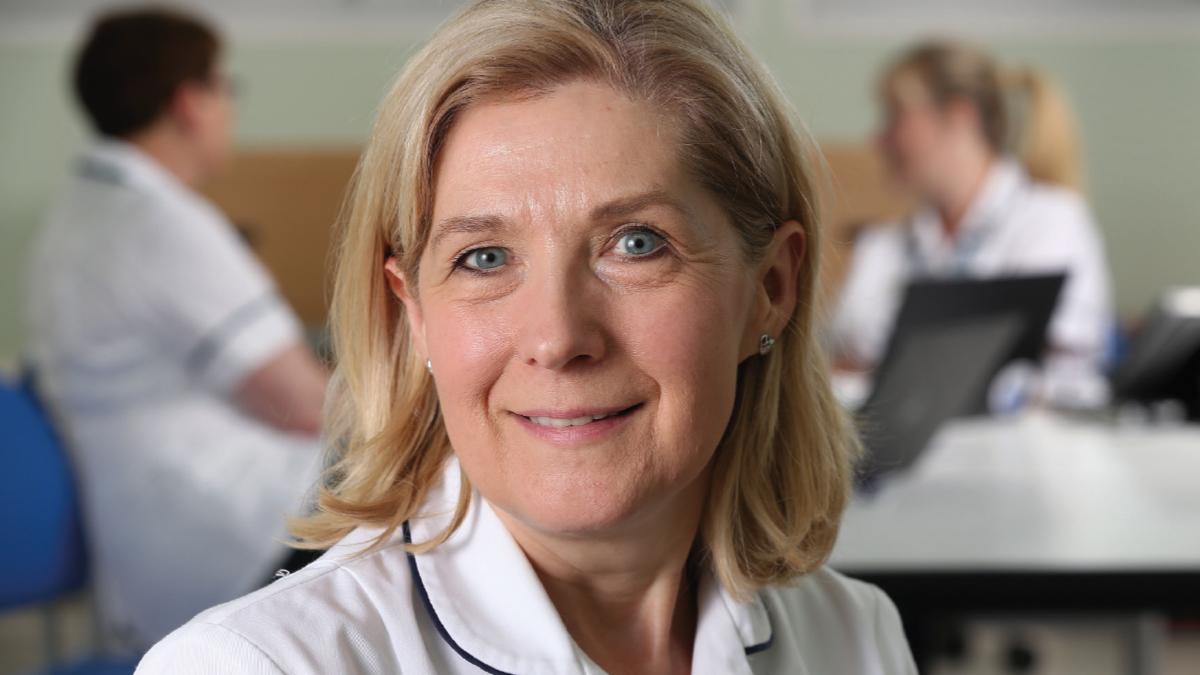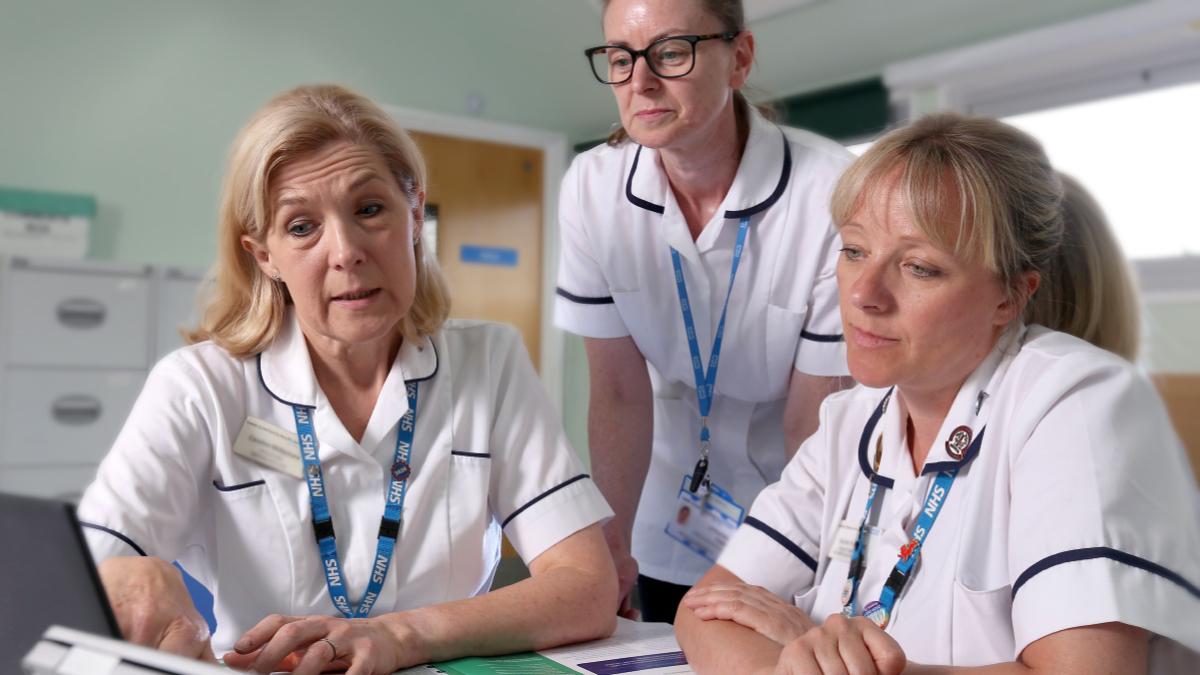Physio Caroline McNamara tells Catherine Turnbull about the challenges and opportunities in her role as clinical lead for community adult services
Ten years is a long stint in a challenging role, admits Caroline McNamara, who leads adult services and over 1,100 staff at Leeds Community Healthcare NHS Trust.
However, it’s the challenges of delivering person-centred care and working to develop ways to address the impact of health inequalities on the local population that keep her motivated and interested.
‘It’s a privilege as there are not many senior clinical jobs at this level,’ she says, of her role at a level that has been traditionally held by a nurse.
A decade ago, applications were open to all professions and any clinicians could have applied. Caroline admits it was ‘a real leap of faith to take on this massive role’, but she was keen to grasp an opportunity to develop and draw on her wide experience to lead the service strategically.
She qualified in 1983 at Leeds School of Physiotherapy, then worked for an acute trust for five years on rotation, before taking on a senior role in orthopaedics. After working in outpatients, she realised that she enjoyed working in MSK outpatients and with the elderly.
‘I was leading an MSK service ten years ago when I applied for this clinical lead role,’ she recalls. ‘I was enjoying the leadership and management part of my job in the MSK service, but I wanted something to really stretch and challenge me.’
She now leads over 1,100 staff in a multidisciplinary team, from nurses to the non-registered workforce, some doctors, physios, OTs and other allied health professionals.
Was there any resistance to a physio taking up the reins? ‘None, although it was a novel change to have these roles open to everyone and it was assumed it would be a nurse. For the three business units, the trust appointed a physio, a dietician and a social worker as leads.
‘Our adult business unit includes neighbourhood teams – MSTs working in the community. We support people generally and those with frailty, manage long-term conditions and support people who are sub-acutely unwell. I have such an opportunity to influence healthcare and
I’ve overseen ongoing development over the past decade.’
She was also asked by her local commissioning group to work with colleagues to set up a Long Covid rehab pathway and Leeds was the route finder for this piece of work and has spoken at both national and international conferences to share this.
Virtual ward for frailty
Caroline’s trust is currently undergoing an extensive redesign of how it delivers intermediate care and transfer of care to support people to stay out of hospital and to come out more quickly when they are in hospital.
It is pioneering a virtual ward, which supports up to 37 patients per day, with plans to grow this to 60 this year, and provides co-ordinated rapid care to older people with moderate to severe frailty in their own homes with an urgent medical need (sub-acutely unwell).
In January prime minister Rishi Sunak and social care minister Helen Whately met Caroline and clinical colleagues at a healthcare centre in Leeds.
‘The prime minster asked us about the Leeds virtual ward for frailty and its work in helping to support patients to be safely and effectively supported with their sub-acute care at home (or care home),’ she says.
We discussed how community services such as the virtual ward and neighbourhood teams help patients to avoid unnecessary hospital admissions and enable them to be discharged as soon as they are medically well enough.
‘This is because of a combined community offer of clinical care, social care and support from third sector providers.’
The visit was also an opportunity to make a case for physiotherapy. ‘I explained that the community neighbourhood teams are multidisciplinary and that in the community trust in Leeds physiotherapists undertake several types of roles from senior clinical leadership roles, support intermediate care and complex long term condition case management and rehabilitation, and as advanced clinical practitioners with the virtual ward.
‘We mentioned that physios and OTs also work as an in-reach team into the hospital wards and the ED, enabling rapid discharge from hospital to the care of the community neighbourhood teams.’
Leeds is part of the pioneer group across the UK for virtual wards. The new name will be Home Ward. Caroline still spends time in clinical practice with colleagues to further her understanding, including with the virtual ward.
Build on your physio skills
When Caroline started working 40 years ago, she became a CSP steward, which was useful training and gave her a broader perspective to governance of an NHS organisation.
‘When I moved back to Leeds, I was a health and safety rep for our services. All these things helped me build my knowledge for this role. I took a seismic sidestep, but all my experiences and knowledge continue to give me options. I also find being a member of my CSP regional network invaluable.
‘Putting patients at the centre of what we do is still the key for me and looking after the staff.’
Of course, there are many challenges to developing community services whilst navigating the rapidly changing healthcare environment. When asked she cites the changes in funding and commissioning, with the significant impact of the challenges to recruit and retrain registered clinical staff, the impact of the Covid pandemic and the emergence of a significant impact on staff health and wellbeing.
Has she experienced any barriers as a physio in her role? ‘The opposite if anything,’ she says.
‘Our problem-solving skills help. We can do the academic work, communicate and work collaboratively.
‘I have had a fantastic career with so many opportunities (and challenges). My physio skills have enabled me to have many different roles and I have been supported to develop throughout my career. My role allows me to be able to work both strategically at system level and clinically.
‘It’s a fascinating, challenging, privileged role to have. From 1980 until today, I have been proud to be a physio.’
Caroline’s advice for physios who are early in their careers is to: ‘Take any opportunity, make brave choices, study, train and embrace education throughout your career as you never know when it will be useful.
‘Don’t undermine the skills and knowledge of physiotherapy and how physios can work in complex MDTs – we have a very broad skillset and ability to analyse and are good with people.’
She adds that: ‘As physios we need to look at a wider range of roles outside the traditional.
‘Have a good network and consider joining a CSP regional network. Having connections within your own profession and broadening who you talk to is very important and supports professional and clinical development.’
Find Out More
Number of subscribers: 1






































